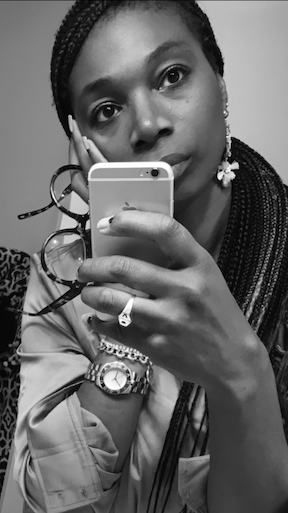Tracey Walters
Eos spoke with Dr. Walters in February 2021.
Please tell us about your work:
I am Associate Professor of Literature and Chair of the Department of Africana Studies at Stony Brook University where I also hold an affiliate appointment with the Department of English and Comparative Literature, and Women’s, Gender and Sexuality Studies. I have published a number of articles on the subject of African Diasporic Women’s literature and two books: African American Women and the Classicists Tradition: Black Women Writers from Wheatley to Morrison (Palgrave 2007) and edited the collection Zadie Smith: Critical Essays (Peter Lang 2008). My latest publication, Not Your Mother’s Mammy (Rutgers 2021), examines how black artists of the diaspora reconstruct the black female subjectivities of domestics in black media. In doing so, they undermine and defamiliarize the reductive, one-dimensional image of black domestics as perpetual victims lacking voice and agency.
How did you become interested in your field?
As a young person growing up in Hertfordshire (UK), I was enamored with the idea of a Historically Black College so decided to attend Howard University. It was in Dr. Anne Kelly’s British Literature course that I delved into Phillis Wheatley’s poetry. It was a lightbulb moment for me to learn about writers such as Phillis Wheatley and Gwendolyn Brooks, women who mastered their literary genres. They managed to democratize and appropriate Classics while also challenging the role of Classics as a marker of legitimacy. As I continued my studies in African American literature and Black British literature, I kept seeing Classics resurface in a variety of texts and grew interested in the ways it resonated in different contexts.
What do you find most exciting about teaching classical receptions? What challenges have you faced in teaching in this field?
I enjoy helping students see themselves in texts even if said texts were written thousands of years ago. It can be challenging to show a diverse array of students that Classics is not a dusty, distant field. To offset this perspective, I inform my students that Classics is one of many tools employed by novelists. I also work hard to make my course material resonate with my students without sacrificing intellectual rigor. For instance, a course that I taught at the New School, “From Ovid to Jerry Springer,” allowed students to think critically about jilted lovers, incest, and exaggerated sexual conquests in both an ancient and modern context.
Tell us about a work of scholarship or classical reception you’ve discovered in the last year:
I am in deep admiration of Kara Walker’s Fons Africanus (2019), a colossal sculptural project currently on display at the Tate Modern museum. I am amazed at the ways that she integrates various cultural contexts and symbolism into art without oversimplifying the complicated contours of the Black Atlantic. I have included Walker’s earlier installations (such as her 2014 “A Subtlety, or the Marvelous Sugar Baby”) in my new book and in my curriculum, and I hope to write a piece about Fons Africanus in the future.
What advice do you have for students or scholars interested in working in your field?
Since most of my students are STEM majors, I do not encounter many students who plan on being formal scholars of African American literature. Nonetheless, I am pleased to note that my students are pleasantly surprised when they are confronted with my course material; the universality of literature becomes apparent when they remark that they enjoy engaging with various texts. For students working with me on final papers or independent studies related to my expertise, I always invite them to share their curiousity and see themselves as important interlocutors in their own right.
How have the relationship between Classics and African American literature changed in recent years?
In recent months, I have noticed more interest in my early work among Classicists (recently, the president of the Society of Classical Studies, Shelley Haley, invited to participate in a panel at the Society for Classical Studies in 2022). In terms of African American literature, it is great to see that this field has made more space for diasporic writers, i.e. writers whose identities straddle different countries such as Bernadine Evaristo. It is heartening to see the academy embrace this new generation of Black diasporic writers.
Who are your top five writers?
This is an unfair question to pose to a reader! There are so many books I enjoy. This list is subject to change, but as it stands: James Baldwin, Zadie Smith, Toni Morrison, bell hooks, Tsitsi Dangarembga.
Special mentions: Audre Lorde, Jhumpa Lahiri, Jacqueline Woodson, Julia Alvarez, Buchi Emecheta.
